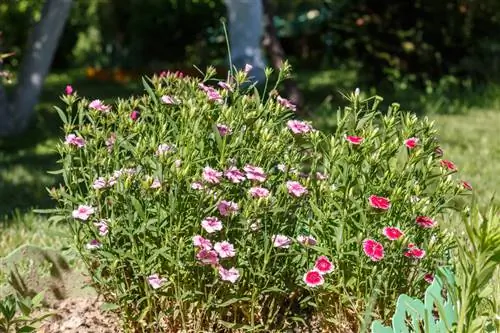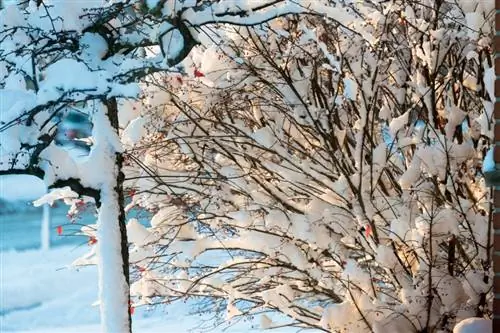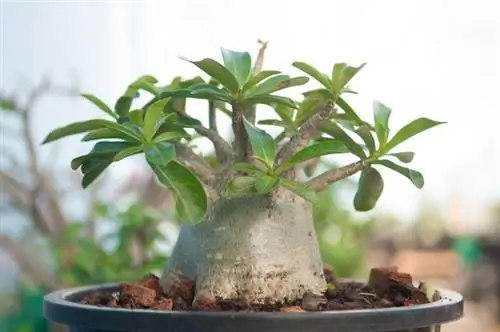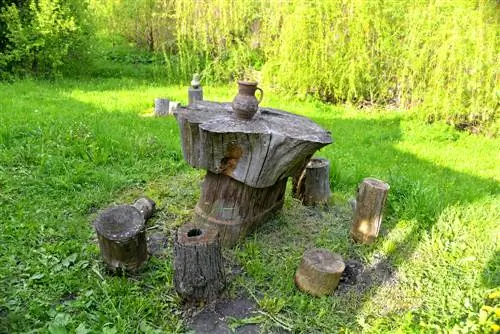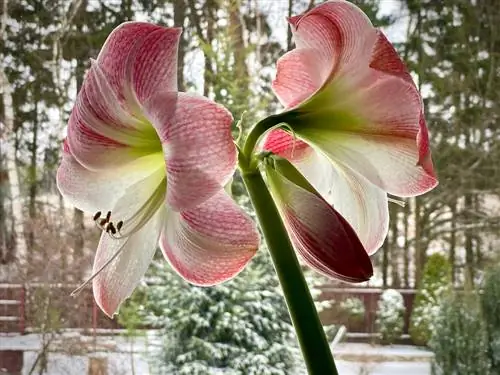- Author admin [email protected].
- Public 2023-12-16 16:46.
- Last modified 2025-01-23 11:20.
Carnations are considered biennial summer flowers. They are sown in the first year and grow, but only bloom in the second year. Ideally, they will survive the winter outside in the garden bed, but occasionally only with additional protection.
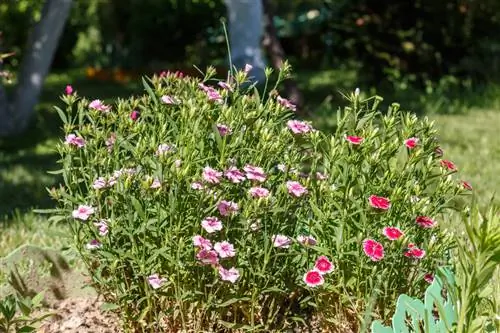
How can bearded carnations properly overwinter in winter?
Bearded carnations can overwinter outside in the garden bed or as potted plants. In the bed, young plants should be covered with bark mulch, brushwood or leaves. Potted plants need a frost-free location and their roots should be protected with a blanket or fleece.
That's why you shouldn't sow your bearded cloves too late, otherwise the young plants will still be very sensitive when winter begins. Cover this with a layer of bark mulch (€14.00 on Amazon), brushwood or leaves. This is usually enough to protect you from the cold. Overwintering in frost-free indoor spaces does more harm than good to the carnation.
Potted plants should also overwinter outside. Protect the roots of your bearded cloves from frost by wrapping the planter with an old blanket or fleece and then placing it somewhere protected from icy winds.
The most important things in brief:
- hardy
- If necessary, cover young plants with brushwood
- Protect potted plants from frost
Tip
Carnations should always overwinter outside!

